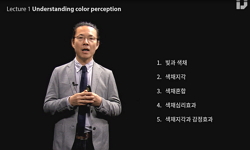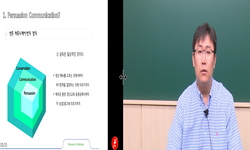This study investigated the effects of word color, serial-position, and their interaction on L2 learners’ recall and retention of words. Adopting a repeated-measure design, this study presented 19 Korean middle school students with low frequency Eng...
http://chineseinput.net/에서 pinyin(병음)방식으로 중국어를 변환할 수 있습니다.
변환된 중국어를 복사하여 사용하시면 됩니다.
- 中文 을 입력하시려면 zhongwen을 입력하시고 space를누르시면됩니다.
- 北京 을 입력하시려면 beijing을 입력하시고 space를 누르시면 됩니다.
https://www.riss.kr/link?id=A104157863
- 저자
- 발행기관
- 학술지명
- 권호사항
-
발행연도
2013
-
작성언어
English
- 주제어
-
등재정보
KCI등재
-
자료형태
학술저널
- 발행기관 URL
-
수록면
147-167(21쪽)
-
KCI 피인용횟수
0
- 제공처
- 소장기관
-
0
상세조회 -
0
다운로드
부가정보
다국어 초록 (Multilingual Abstract)
This study investigated the effects of word color, serial-position, and their interaction on L2 learners’ recall and retention of words. Adopting a repeated-measure design, this study presented 19 Korean middle school students with low frequency English words and pseudo words under each of the four conditions: [–Order –Color], [–Order +Color], [+Order –Color], and [+Order +Color]. Their vocabulary recall and retention were measured by immediate and delayed free recall tasks, along with written retrospective protocols. Overall the results of this study supported the effects of color, serial-position and their interaction on immediate recall and partly on retention. The participants’ immediate recall test scores were higher when some words in the list were marked in color ([+Color] conditions) and the further analyses of individual words showed that those colored words were recalled and retained more frequently and foremost than non-colored ones. It was also found that words in first and last positions resulted in high recall and retention,with stronger primacy effect of the first position than recency effect of the last position. Yet, when color was added, the recency effect turned out to be stronger than primacy effect. Finally, written retrospective protocols confirmed that the participants actually paid attention to color and serial-position of words while processing the presented words
참고문헌 (Reference)
1 McCarthy, Michael, "Vocabulary" Oxford University Press 1990
2 Lee, Sang-Ki, "Visual input enhancement and grammar learning" 30 (30): 307-331, 2008
3 Graves, Michael F., "The roles of instruction in fostering vocabulary development, In The Nature of Vocabulary Acquisition" Lawrence Erlbaum Associates 165-181, 1987
4 Dzulkifli, Mariam A., "The influence of colour on memory performance: A review" 20 (20): 3-9, 2013
5 Smilek, Daniel, "Synesthetic colour experiences influence memory" 13 (13): 548-552, 2001
6 Jones, Tim, "Serial-position effects for items and relations in short-term memory" 21 (21): 347-365, 2013
7 Wiswede, Daniel, "Serial position effects in free memory recall—An ERP-study" 75 : 185-193, 2007
8 Stewart, Dennis D., "Serial position effects and the picture-superiority effect in the group recall of unshared information" 8 (8): 166-181, 2004
9 Murdock, Bennet B., "Serial position effect of free recall" 64 (64): 482-488, 1962
10 Deese, James, "Serial effects in recall of unorganized and sequentially organized verbal material" 54 (54): 180-187, 1957
1 McCarthy, Michael, "Vocabulary" Oxford University Press 1990
2 Lee, Sang-Ki, "Visual input enhancement and grammar learning" 30 (30): 307-331, 2008
3 Graves, Michael F., "The roles of instruction in fostering vocabulary development, In The Nature of Vocabulary Acquisition" Lawrence Erlbaum Associates 165-181, 1987
4 Dzulkifli, Mariam A., "The influence of colour on memory performance: A review" 20 (20): 3-9, 2013
5 Smilek, Daniel, "Synesthetic colour experiences influence memory" 13 (13): 548-552, 2001
6 Jones, Tim, "Serial-position effects for items and relations in short-term memory" 21 (21): 347-365, 2013
7 Wiswede, Daniel, "Serial position effects in free memory recall—An ERP-study" 75 : 185-193, 2007
8 Stewart, Dennis D., "Serial position effects and the picture-superiority effect in the group recall of unshared information" 8 (8): 166-181, 2004
9 Murdock, Bennet B., "Serial position effect of free recall" 64 (64): 482-488, 1962
10 Deese, James, "Serial effects in recall of unorganized and sequentially organized verbal material" 54 (54): 180-187, 1957
11 Pan, Yi, "Research on the Content-based Working Memory-driven Capture of Visual Attention and Its Automaticity" Zhejiang University 2009
12 Onifade, Emmanuel O., "Recall and the serial position effect: The role of primacy and recency on accounting students’ performance" 15 (15): 65-87, 2011
13 Li, Cong, "Primacy effect or recency effect? A long-term memory test of Super Bowl commercials" 9 : 32-44, 2010
14 Ebbinghaus, Herman, "On memory: A contribution to experimental psychology" Columbia University, Teachers College 1913
15 Pulido, Diana, "Modeling the role of second language proficiency and topic familiarity in second language incidental vocabulary acquisition through reading" 53 : 233-284, 2003
16 Coady, James, "L2 vocabulary acquisition: A synthesis of research, In Second Language Vocabulary Acquisition" Cambridge University Press 225-237, 1997
17 Welch, G. B., "Is primacy a factor in association- formation?" 35 (35): 396-401, 1924
18 Poirier, Marie, "Immediate serial recall, word frequency, item identity and item position" 50 : 408-412, 1996
19 Atkinson, Richard C., "Human memory: A proposed system and its control processes, In The Psychology of Learning and Motivation" Academic Press 89-195, 1986
20 Spence, Ian, "How color enhances visual memory for natural scenes" 17 (17): 1-6, 2006
21 Miyakoda, Haruko, "Effective way of learning abstract lexical items: Focusing on color in vocabulary learning" 7 : 39-45, 2013
22 Robinson, Edward S., "Effect of serial position upon memorization" 37 : 538-552, 1926
23 Pan, Yi, "Attentional capture by working memory contents" 64 (64): 124-128, 2010
24 Farley, Frank H., "Arousal and cognition memory for colour versus black and white multimedia presentation" 94 : 147-150, 1976
25 Kurbat, Matthew A., "A year’s memories: The calendar effect in autobiographical memory" 26 : 532-552, 1998
동일학술지(권/호) 다른 논문
-
Effects of Color and Serial-Position of Words on L2 Vocabulary Recall and Retention
- 서울대학교 언어교육원
- SoJin Kang
- 2013
- KCI등재
-
Korean EFL Learners’ Recognition of English Obligatory Adjuncts
- 서울대학교 언어교육원
- Ju Young Min
- 2013
- KCI등재
-
Asymmetry Between CP and TP Ellipsis and Its Consequences on Extractability
- 서울대학교 언어교육원
- Myung-Kwan Park
- 2013
- KCI등재
-
Specifications and Analysis of the Korean Sentiment Analysis Corpus
- 서울대학교 언어교육원
- Hyopil Shin
- 2013
- KCI등재
분석정보
인용정보 인용지수 설명보기
학술지 이력
| 연월일 | 이력구분 | 이력상세 | 등재구분 |
|---|---|---|---|
| 2027 | 평가예정 | 재인증평가 신청대상 (재인증) | |
| 2021-01-01 | 평가 | 등재학술지 유지 (재인증) |  |
| 2018-01-01 | 평가 | 등재학술지 유지 (등재유지) |  |
| 2015-01-01 | 평가 | 등재학술지 유지 (등재유지) |  |
| 2014-01-09 | 학술지명변경 | 외국어명 : 미등록 -> LANGUAGE RESEARCH |  |
| 2011-01-01 | 평가 | 등재학술지 유지 (등재유지) |  |
| 2009-01-01 | 평가 | 등재학술지 유지 (등재유지) |  |
| 2007-01-01 | 평가 | 등재학술지 유지 (등재유지) |  |
| 2005-04-23 | 학회명변경 | 한글명 : 어학연구소 -> 언어교육원 |  |
| 2005-01-01 | 평가 | 등재학술지 유지 (등재유지) |  |
| 2002-07-01 | 평가 | 등재학술지 선정 (등재후보2차) |  |
| 2000-01-01 | 평가 | 등재후보학술지 선정 (신규평가) |  |
학술지 인용정보
| 기준연도 | WOS-KCI 통합IF(2년) | KCIF(2년) | KCIF(3년) |
|---|---|---|---|
| 2016 | 0.58 | 0.58 | 0.68 |
| KCIF(4년) | KCIF(5년) | 중심성지수(3년) | 즉시성지수 |
| 0.56 | 0.52 | 1.474 | 0.19 |




 KCI
KCI







